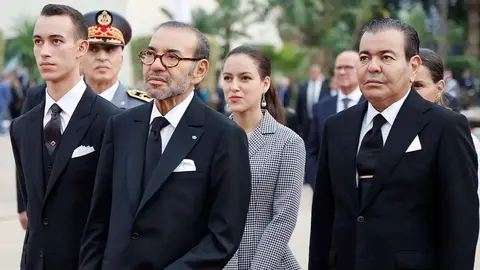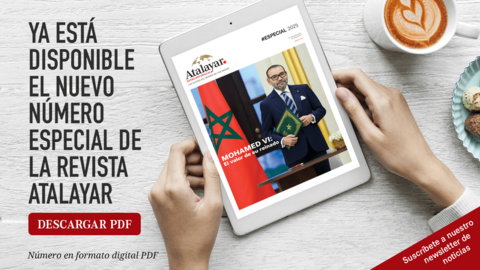Mohammed VI promotes social and territorial transformation for Morocco, while reiterating his outstretched hand to Algeria
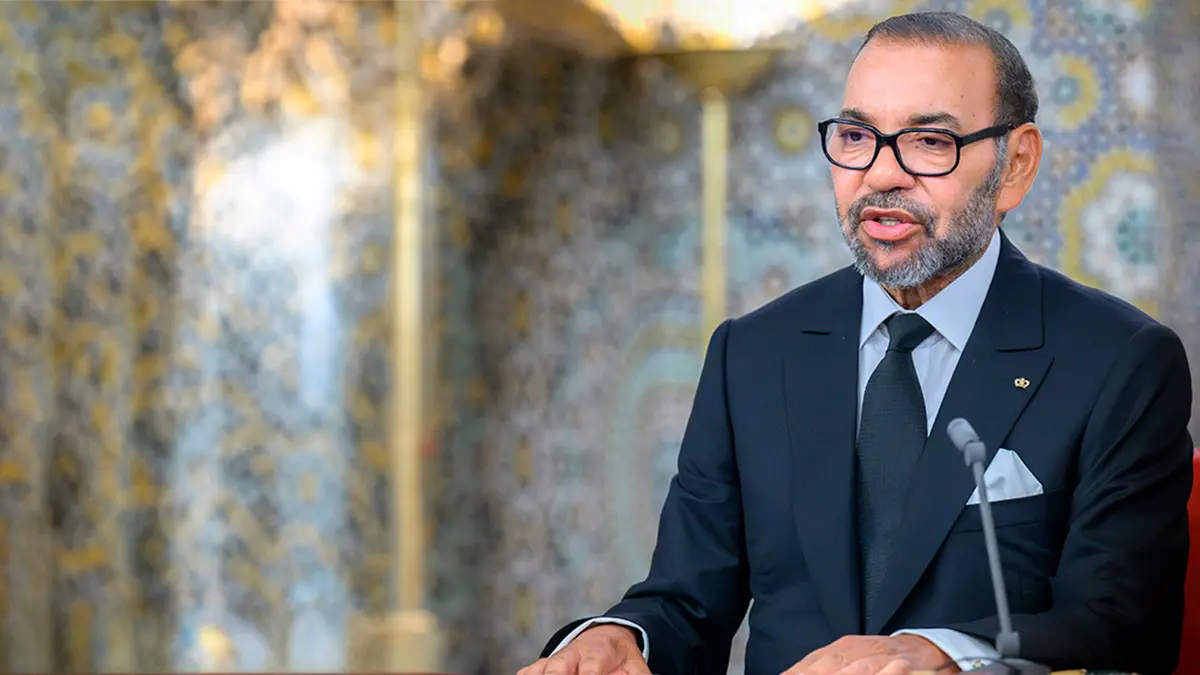
- Territorial gaps and the need for equity
- Hand extended to Algeria for regional reconciliation
- Mass pardons on Throne Day
- Speech by the King
When the 26th anniversary of his enthronement, King Mohammed VI of Morocco addressed the nation with a message full of hope, but also of commitment to address the gaps that still exist in the country. ‘I will not be satisfied if economic development does not translate into real and tangible improvements in the lives of all citizens,’ the monarch stressed, recalling that ‘there is no place, either today or tomorrow, for a two-speed Morocco.’
Mohammed VI reviewed all the achievements made during his reign, emphasising political stability and steady economic growth, despite the difficulties arising from global climatic, political, and economic conditions. ‘Our country has experienced an unprecedented industrial renaissance,’ he said, highlighting the enormous growth of sectors such as automotive, aeronautics, renewable energy, agribusiness, and tourism, which have become the pillars of the national economy.
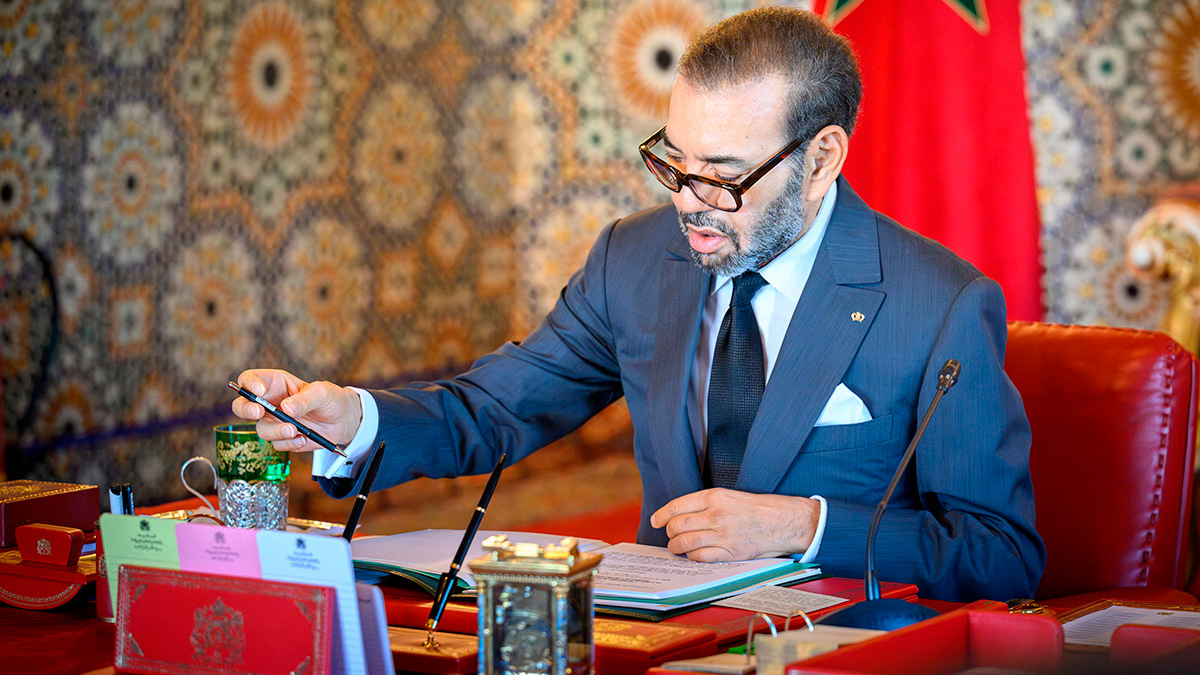
Territorial gaps and the need for equity
However, the monarch acknowledged that challenges remain. Mohammed VI said that today there are territories, especially rural ones, where poverty and the lack of basic infrastructure make life difficult for many families. ‘Development cannot be a privilege for a few or for certain regions,’ he said. This is a compelling reason the King urged the need for a ‘genuine change in land use planning,’ with an inclusive approach that places local specificities at the centre and promotes solidarity between the different regions of the country.
The King outlined the four main pillars on which this new transformation of the country will be based: more support for local employment; better guarantees of access to basic services; better management of water resources; and better coordination of major infrastructure projects with the territorial needs of each region.
In addition, with an eye on the upcoming legislative elections, Mohammed VI announced a review of the electoral code, a step he considered necessary to strengthen democracy and citizen participation. He therefore asked Interior Minister Abdelouafi Laftit to open a ‘frank and responsible’ dialogue with all political actors, thus preparing the ground for next year's elections.

Hand extended to Algeria for regional reconciliation
On a regional level, the monarch sent a message of détente to Algeria. Mohammed VI once again extended his hand to Algeria with a clear and heartfelt message: ‘The Algerian people are a brother people, united to the Moroccan people by deep human, historical and cultural ties.’ The monarch thus recalled the importance of neighbourliness and peaceful coexistence, reaffirming that political differences should not break a relationship so deeply rooted in time and bonds of brotherhood.
He also stressed that the history of the two countries unites them more than it divides them, and that it is essential to open channels of sincere dialogue to help overcome differences. Mohammed VI pointed out that talks must be based on mutual respect to achieve regional stability. He also expressed his firm conviction that only ‘together can we overcome this unfortunate situation,’ calling for misunderstandings to be overcome and a shared future to be built for the benefit of both peoples and the entire Maghreb.
Finally, he proudly highlighted the international support for the Moroccan Autonomy Plan for Western Sahara, proposed by the monarch himself in 2007, indicating that this initiative represents ‘the only realistic, credible and reliable solution to resolve the conflict’. In this regard, Mohammed VI referred to the recent support of the United Kingdom and Portugal, whose stance strengthens the country's position in the world.
‘These positions fill us with honour and reaffirm the legitimacy of our cause,’ concluded the monarch, who recalled that international recognition is not only a diplomatic triumph, but also a testimony to respect for the sovereignty and territorial integrity of the country.
Finally, the King reaffirmed his commitment to a peaceful and consensual solution based on dialogue and respect for the rights of all parties involved, convinced that stability and peace are possible for the region.
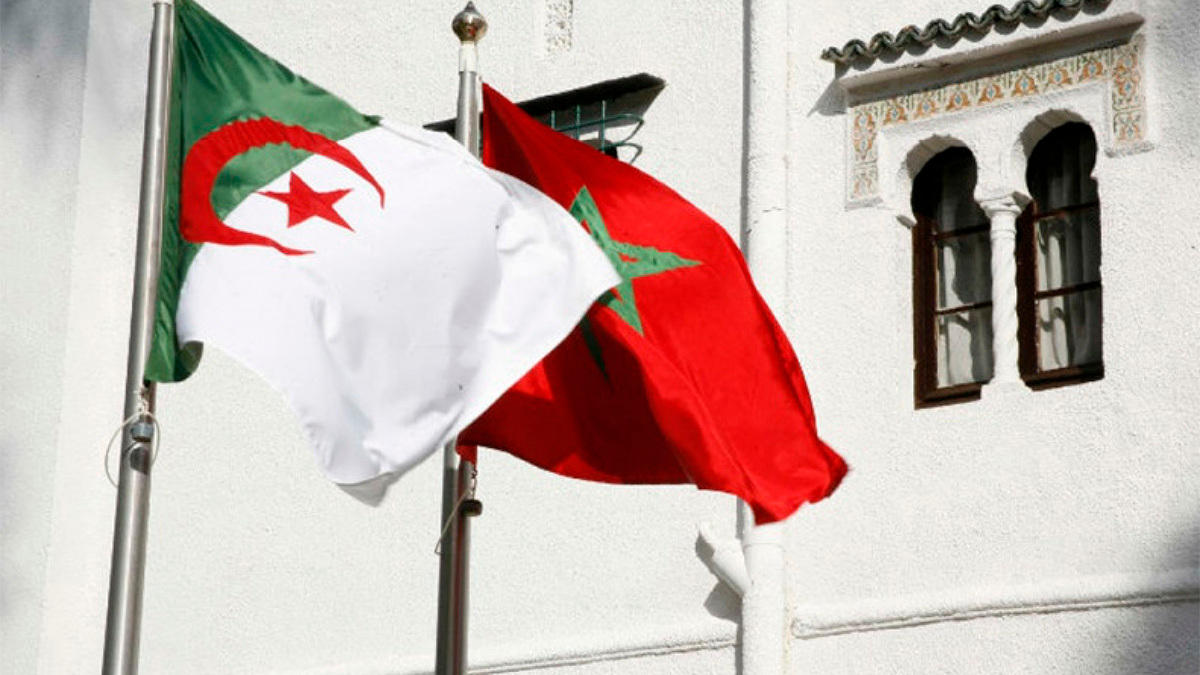
Mass pardons on Throne Day
As part of the celebrations, Mohammed VI granted a pardon to 20,000 convicted persons, including 23 sentenced to death, who had their sentences commuted to life imprisonment. According to the official statement from the Ministry of Justice, ‘this humanitarian operation illustrates the high royal regard for this category of prisoners.’
In total, 2,415 people were pardoned, of whom 2,239 were in prison. Among these, 16 received a full remission of their sentence and more than 2,200 received a partial remission. In addition, another 176 beneficiaries were serving their sentences in freedom. Furthermore, 17,258 convicts were granted exceptional pardons, with most receiving full remission of their sentences and some having their life sentences and death sentences commuted.
This gesture reflects the monarch's desire to promote justice and social reconciliation and is a clear message of humanity and hope for thousands of people and their families.
Speech by the King
The King of Morocco, Mohammed VI, delivered his customary speech to the Moroccan people on the 26th anniversary of his accession to the throne of his glorious ancestors.
Here is the full text of the Royal Speech:
“Dear Citizens,
Throne Day celebrations provide an annual opportunity to renew the bonds of mutual allegiance and the feelings of affection and loyalty which have invariably united us, and which grow stronger as time goes by.
It is also an opportunity to reflect on where the nation stands: the gains we have achieved, the projects to come, and the challenges lying ahead, as we look to the future with confidence and optimism.
Since my accession to the throne, I have worked to build an advanced, unified and solidarity-based Morocco. To this end, I have sought to promote comprehensive economic and human development, making sure Morocco enhances its status as an emerging country.
Our country’s achievements were not by accident. They are the result of a long-term vision, of the pertinence of the major development choices made, and of the political and institutional security and stability enjoyed by our country.
Based on that rock-solid foundation, I have seen to it that the pillars of economic and social progress are strengthened, in accordance with the new development model. I have also made sure that we build a more competitive, diversified and open economy, seeing to it that a healthy, stable macroeconomic environment is preserved.
Despite successive years of drought and worsening international crises, the national economy has maintained a significant and steady growth rate in recent years.
Morocco is also witnessing unprecedented industrial renaissance. Thus, industrial exports have more than doubled since 2014, especially those relating to Morocco’s modern-day global occupations.
Thanks to the strategic policy choices made by our country, the automotive, aviation, renewable energy, food industries, and tourism sectors are today key levers underpinning our emerging economy in terms of both investment and job creation.
An emerging country, Morocco is today characterized by the vast, diversified array of its partners. In addition to promoting investment, Morocco is a responsible, dependable partner. As a result, our economy is today linked to nearly three billion consumers worldwide, thanks to the free trade agreements we signed.
In a similar vein, Morocco has a modern, robust infrastructure network that meets international standards.
To further enhance our infrastructure base, I have recently launched the extension of the high-speed train line linking Kenitra and Marrakech. A number of other large-scale projects are also in progress in the fields of water and food security, as well as Morocco’s energy sovereignty.
Dear Citizens,
You know, I am sure, that regardless of the infrastructure built, and the level of economic development achieved, I would be satisfied only if our accomplishments contribute, in a tangible manner, to improving the living conditions of citizens from all social classes, and in all areas and regions.
With that in mind, I have always attached special importance to promoting human development, ensuring universal access to social protection, and providing direct support to deserving families.
The results of the 2024 General Population Census revealed a set of demographic, social, and regional changes that should be taken into account when preparing and implementing public policies.
There has been, for example, a significant decline in our country’s overall multidimensional poverty rate, which went down from 11.9 percent in 2014 to 6.8 percent in 2024.
This year, as well, Morocco’s score in the Human Development Index has placed our country in the “high human development” category.
Sadly, however, some regions – particularly in rural areas – are still suffering from poverty and vulnerability, due to a lack of infrastructure and basic facilities.
This is not in line with my vision for Morocco today, nor does it fit in with our efforts to promote social development and achieve inter-regional equity.
It is not acceptable for Morocco – today or at any time in the future – to be a two-speed country.
Dear Citizens,
The time has come to achieve a quantum leap in our comprehensive rehabilitation efforts at the local level, and to bridge social and regional disparities.
I therefore call for a shift from traditional approaches to social development, to an approach that promotes integrated regional development.
My goal is to make sure all citizens – in all areas and regions – benefit from the fruits of progress and development, without discrimination or exclusion.
To this end, I have asked the government to adopt next-generation local development programs based on making the most of local specificities. I expect it to ensure that advanced regionalization is firmly rooted, and that the principle of integration and inter-regional solidarity is observed.
These programs should be based on rallying the efforts of all stakeholders around clear priorities and projects with a tangible impact, particularly through the following:
First: Promote employment by leveraging regional economic potential and creating an environment conducive to local entrepreneurship and investment;
Second: Consolidate basic social services, especially in the areas of education and healthcare, in ways that preserve the dignity of citizens and promote inter-regional equity;
Third: Adopt proactive, sustainable water resource management measures, given the effects of climate change and growing water stress concerns;
Fourth: Launch local, integrated rehabilitation projects, in line with the country's major national development projects.
Dear Citizens,
With approximately one year to go before we hold the next legislative elections on their normal constitutional and legal date, I wish to insist on the need to determine the general system governing the electoral process for the House of Representatives. It needs to be known and adopted before the end of the current year.
In this regard, I have instructed the Minister of Interior to ensure proper preparation for the upcoming legislative elections, and to start political consultations with the various stakeholders concerned.
Dear Citizens,
In addition to the commitment to consolidate Morocco's status as an emerging country, I wish to reiterate my resolve to remain open to our regional environment, especially our immediate neighbors and the relationship with our brothers and sisters in Algeria.
My position, as the King of Morocco, is as clear as it is consistent: the Algerian people are our brothers and sisters; they share deep-rooted human and historical ties with the Moroccan people. The bonds of language, religion, geography, and a common destiny unite us.
Therefore, I have always reached out to our brothers in Algeria and said Morocco was ready for frank, responsible, fraternal and sincere dialogue on the various issues pending between the two countries.
My firm commitment to reaching out to our brothers in Algeria stems from a belief in the unity of our peoples and in our ability to overcome, together, this unfortunate situation.
I also affirm my commitment to the Maghreb Union. I firmly believe that it cannot exist without the involvement of Morocco and Algeria, alongside the remaining sister countries concerned.
On a different note, I am proud of the growing international support for the Autonomy Initiative as the only solution to the conflict over the Moroccan Sahara.
In this regard, I wish to express my thanks and appreciation to our friends, the United Kingdom and the Portuguese Republic, for their constructive position in support of the Autonomy Initiative within the framework of Morocco's sovereignty over its Sahara. This stance strengthens the position of many countries across the world.
As proud as I am of these stances, which uphold right and legitimacy, I keenly look forward, as well, to finding a consensual solution – a solution with neither winner nor loser; a face-saving solution for all parties.
Dear Citizens,
As we celebrate the glorious Throne Day, I wish to pay tribute and express my appreciation to all members of our Royal Armed Forces, the Royal Gendarmerie, the Local Authorities, the National Security Forces, the Auxiliary Forces, and the Emergency Services, for their dedication and constant mobilization under my leadership to defend the nation's unity, security, and stability.
I also recall, with deep reverence, the pure souls of Morocco's righteous martyrs, foremost among them my venerable grandfather and my revered father, Their Majesties the late King Mohammed V and the late King Hassan II – may they rest in peace.
Almighty God says: “Let them adore the Lord of this House, Who provides them with food against hunger, and with security against fear”.
True is the Word of God,
Wassalamu alaikum warahmatullah wabarakatuh."

